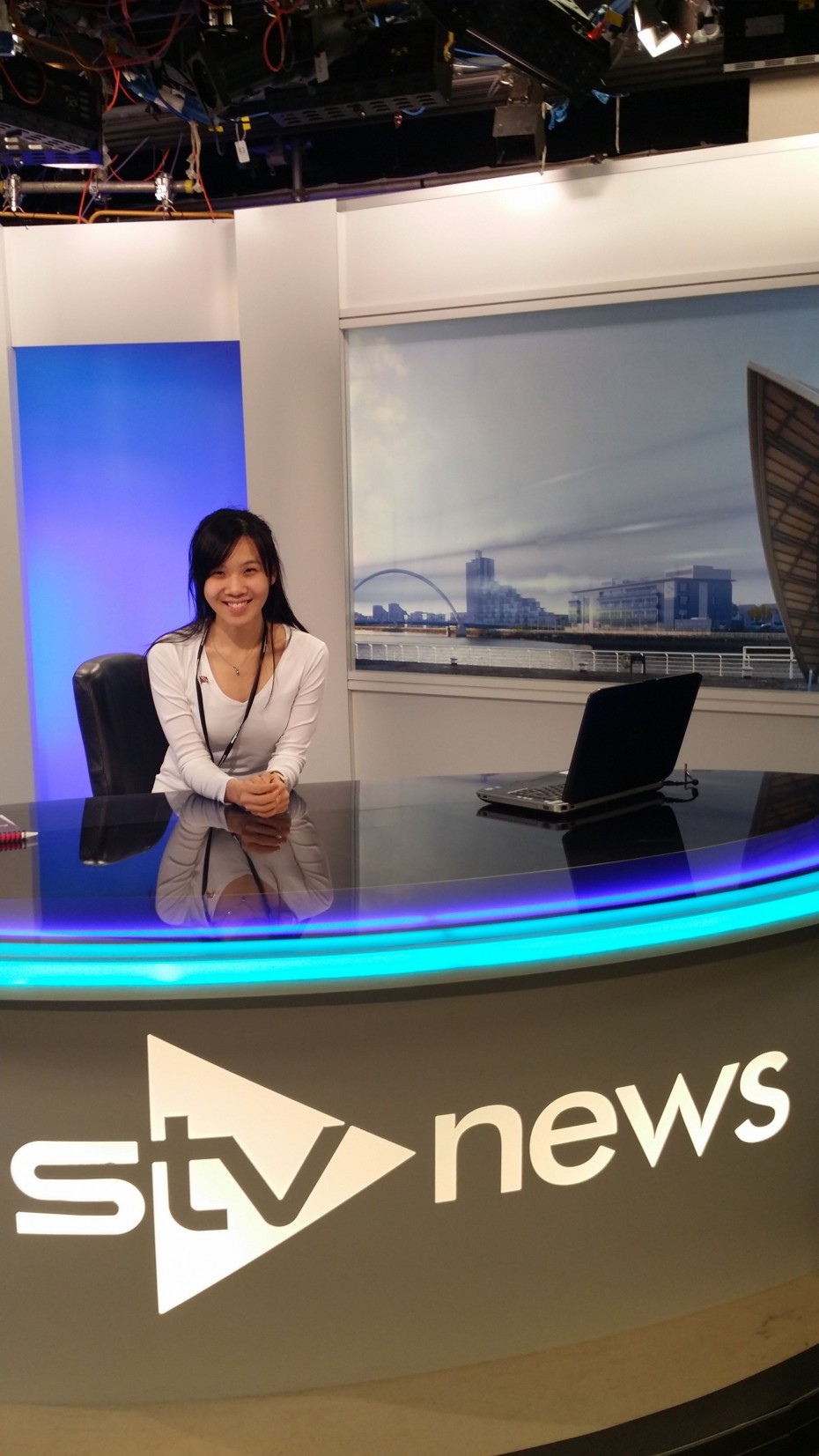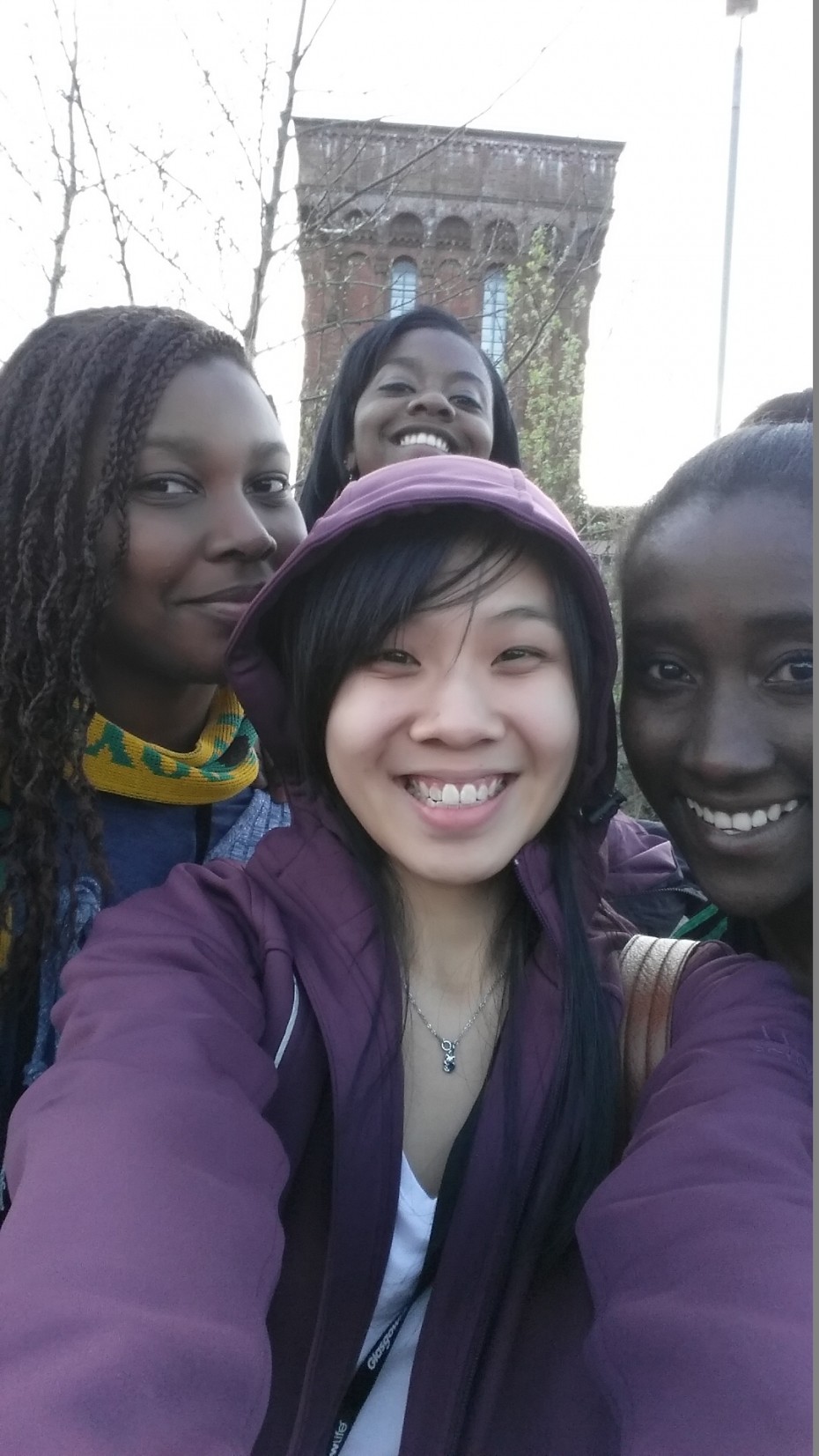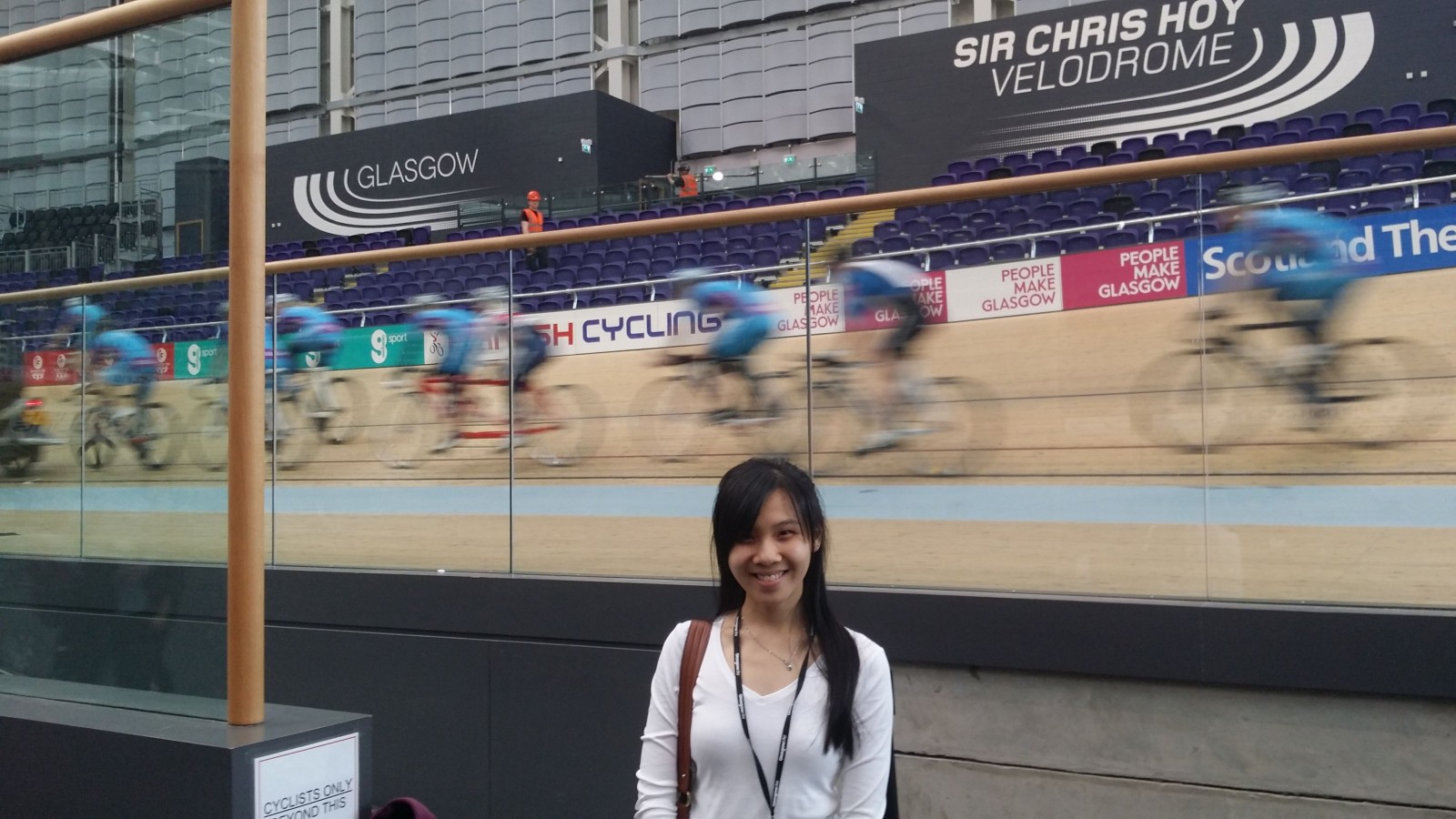By CARISSA TAN
brats@thestar.com.my
CHECKING my phone after an insanely tough trial exam paper, the words “British Council” and “Future News” leapt out at me from an SMS, and my heart started pounding. Could it be? I wondered. After a full 20 minutes of internal screaming, it was confirmed – I was to represent Malaysia at the Aye! Write Future NEWS International Young Journalist’s Conference in Glasgow, Scotland!
The opportunity was made available through the BRATs’ collaboration with the British Council. One lucky BRATs young journalist was to get the chance to attend the conference this year (along with another talented young writer, Crystal Neoh, selected by the British Council), and after submitting my BRATs application essay, that person turned out to be me.

A BRATs exclusive: BRATs journalist Carissa Tan was sent to Glasgow, Scotland earlier this year for the Aye! Write Future News conference. She is pictured here trying her hand at news reading at the STV News studio.
Held 100 days before the Glasgow Commonwealth Games earlier this year, Future News 2014 aimed not only to open the eyes of aspiring young journalists to the wonders of journalism, but also – by introducing a bespoke online newsroom – encourage the participants to write and file stories about the Commonwealth games even after they return home.
The conference
Running from April 14-16, the conference was held at the impressive Mitchell Library, one of Europe’s largest public libraries, with delegates from all over the Commonwealth. Renowned editors, authors, journalists and even athletes were brought in as speakers.

Tan met aspiring young journalists from around the world at the conference, which was open to delegates from across the Commonwealth.
On the first day, Reuters managing editor Paul Ingrassia gave the conference’s keynote address. He spoke about journalism being not just an occupation, but also a calling, something he realised as he was watching the 9/11 attack unfold just across the street from the World Trade Centre in New York.
To him, the most important thing about journalism is to “always maintain a child-like curiousity and delight in every new discovery”.
Sunday Herald foreign editor David Pratt then gave an introduction to news, which he said “should give a voice to the people – and also be entertaining and investigative”.
But perhaps the most important lesson we learnt from the speakers was on the power of journalism – to do both good and bad. DC Thomson Newspapers editor-in-chief Donald Martin said the press has the ability to bring down politicians and expose corruption, which is why so many restrictions are placed on editors.
“Not only are they subjected to legal restrictions, but they are also expected to self-regulate and familiarise themselves with the political environment.” said Martin.
There was also a session on broadcast news, by STV North newsreader Donald John MacDonald, who showed us how news stories are packaged for television. He gave tips for aspiring broadcast journalists, like how to be comfortable in front of camera, and making sure you dress and look the part.
Clearly, a journalist’s job is very complex and demanding, but as The Courier journalist Dr Norman Watson said, there’s really nothing quite like it.
“Journalists aren’t paid very highly; and it’s hard work. But show me a more brilliant job. It’s the best job in the world!” he said. “Journalism is a calling. It’s not just about talent, but also the effort and initiative you put in.”
Going on tour
The conference wasn’t all lectures, speeches and panel discussions, of course. Delegates had the chance to be tourists too!
On our first night there, we were treated to a civic reception at the Glasgow City Chambers, where we were formally received by the Deputy Lord Provost of Glasgow. He welcomed us warmly, expressing his pride at the success of the programme’s launch, declaring that “we will definitely be organising this next year and in the years to come.”
We were also taken on a tour of some of Glasgow’s 2014 Commonwealth Games venues, including the Sir Chris Hoy Velodrome, where we got to see the Scottish national cycling team in action.
And then there was the unveiling of the 2014 Commonwealth Games medals, held at the Calvin Grove Art Gallery and Museum. Only a few selected participants (including yours truly) were given special press passes to attend the grand ceremony, which featured a live orchestra and was graced by famous personalities including former Olympic 100m sprinter Allan Wells.
But what’s a journalism conference without a visit to a newsroom, right? We were lucky enough to be given a tour of STV, Glasgow’s leading TV channel. We went behind-the-scenes across the studio, learning how your daily news broadcasts are put together.
Needless to say, I picked up many invaluable journalistic skills throughout the trip. However, what really stayed with me was the experience as a whole.
I was thrown completely out of my comfort zone, learning not only from some of the best journalists in the world, but also from the other delegates from all over the Commonwealth, each with different cultures, backgrounds and beliefs.
Looking back at some of the friendships I forged, it is astounding how despite all our differences, we were still able to relate with each other through one common passion – journalism.
The writer is a member of the BRATs young journalist programme. For more info, and to apply to join the programme, go to rage.com.my/brats.














Tell us what you think!